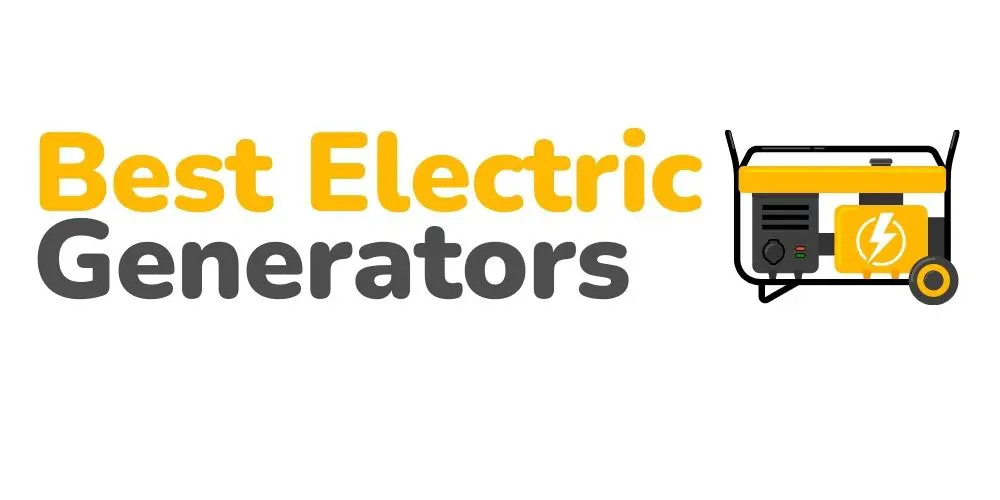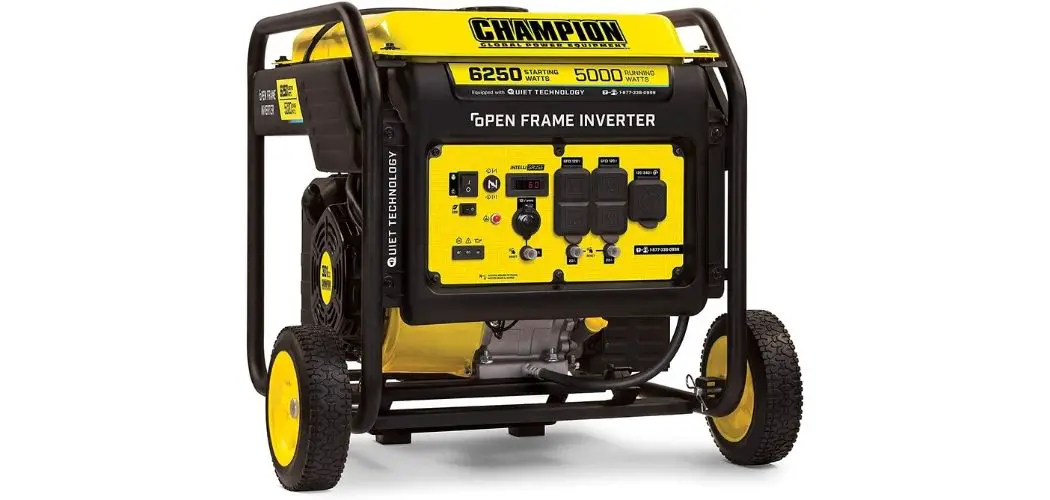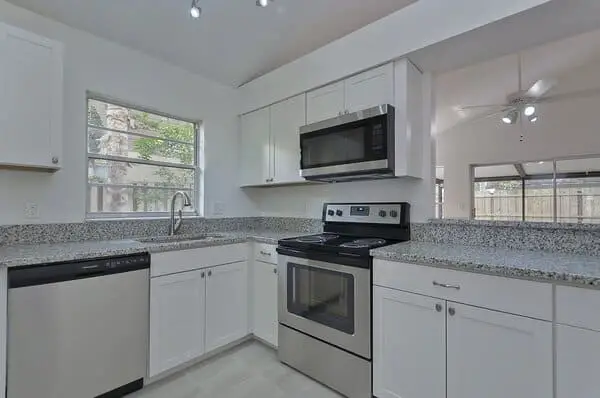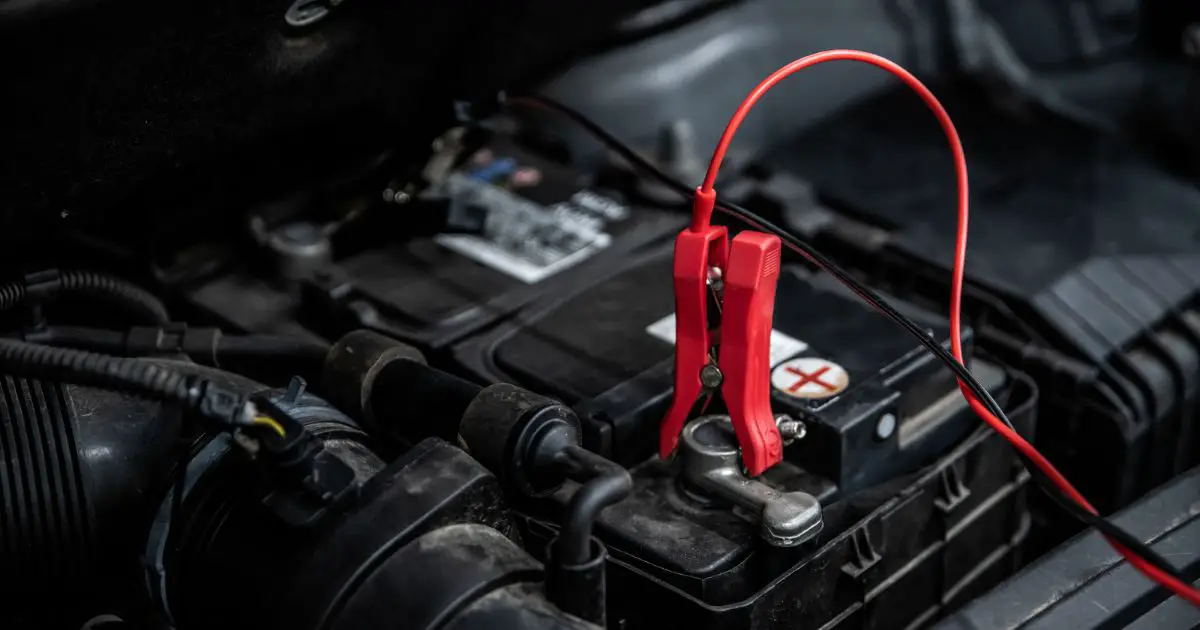Generators are used to supply backup electricity in case of a power outage. Not only that, these generators supply power at remote camping areas as well. Or at industrial projects with drills and machinery.
When getting a generator for your home or camping, there are a few things you should consider. First, make sure you have a list of appliances that you intend on using your generator.
Their wattages should be summed up to get the ideal generator. Seems like hard work? Don’t worry; we’re here to help you choose the right size generator.
How Much Power Is Needed?
Generators are usually differentiated on their power output. It is generally measured in Watts. Generators vary in different wattages. From 1000 Watts that run small appliances to huge generators that can power a city block at once.
Getting a smaller generator might not fulfill your needs. It won’t be able to generate enough electricity to run all your necessary electric appliances at once. At the same time, getting a more significant than required generator will be overkill.
Not only that, larger generators make loud noises when generating electricity. If the noise is too loud, it can damage your hearing abilities over time.
If you have a small home. Where you plan only to use necessary appliances during power outages. Then, a normal generator will be enough for you. But most of the time, our assumptions go wrong, and we end up regretting our choices.
That’s why we’re here for you. In the following few paragraphs, we’ll help you in selecting the perfect generator for your needs.
Know Your Requirements:
When buying a generator, the first thing to consider is the frequency of outages. It depends on the duration of each outage and the number of times. Each generator has its pros and cons.
A generator can be perfect for situation A, but it won’t be ideal in situation B. Therefore, we need to look at every condition in which you might need a generator.
If you live in an area with severe weather conditions and your power outages, last for weeks at a time. For this situation, generators will be comparatively more expensive than others. But they can generate power for a long duration of time at once.
These generators are equipped for your home supply from the power box with a transfer switch. You can use your central heat or air conditioning, pumps, water heaters, etc., on it.
If you have outages after longer durations. Say after a week or so, and you’re not planning to spend too much on standby generators.
Instead, you’re looking for something that you can pull out of your garage whenever required and provide power to your house. Then, a portable generator or large inverter would be the choice for you.
These generators also use transfer switches, but they aren’t fixed in one place. And you can move them from one place to another with the help of wheels on these generators.
The last type is for rare outages. Where you hardly get an outage, but they last for an hour or so. Again, we’d recommend getting a medium or small-sized generator for such.
These generators will prove to be enough to supply to window AC or fridge. They can also be used when you’re going camping or tailgating. That’s because of the portability of these generators as they are lightweight and small in size.
Calculation Of Starting and Running Wattages:
Once you know your target appliances and the type of generator for them. The next step would be to find out the target power for that generator.
In electric appliances, there are two types of wattage. One is the starting wattage, While the other is the running wattage.
Think of this as you’re trying to push something on wheels. First, you’d need to apply a higher force to move them. Then, once they start moving, you can use a lower force to move them.
That’s exactly how it works with appliances. To give them a push start, they require higher wattage. Remorsefully, that is usually twice or thrice more than its normal wattage.
Whenever you plan on buying a generator, you should keep this in mind. We’d recommend getting a generator that can produce at least 1.5 times more wattage than you require.
That’s because if you use 2-3 appliances simultaneously, they take more wattage than required. So, your generator would have to produce more than it can.
Unfortunately, that will put a strain on its mechanical parts and permanently damage it.
List The Items You Need to Get Powered:
With these concepts of starting and running wattages in mind. Now is the time to make a list of items you plan to use on your generator.
The first step would be to take a good look at all the appliances in your home. And decide if you want a hardwired setup or one that you can plug in and out whenever needed. Then, we’ll give you a hint.
Usually, hardwired setups are targeted for higher wattage requirements as they can supply electricity to the whole house. This can be controlled by manually turning breakers off.
To get an idea of a load of some common electric appliances. Consult this table down below:
| TOOL OR APPLIANCE | ESTIMATED RUNNING WATTS | ADDITIONAL STARTING WATTS |
| Refrigerator/ Freezer | 700 | 2200 |
| Electric Water Heater | 4000 | – |
| Washing Machine | 1150 | 2250 |
| Microwave Oven | 1000 | – |
| Dishwasher | 1500 | 1500 |
| Electric Grill | 1650 | – |
This graph shows wattages of some basic electric appliances that are for day-to-day use. First, you can sum up the ones that you’re planning to use. Then, multiply the final answer with 1.5, and that’s the power your generator should be able to produce.
This gives your generator breathing air, and it makes sure your generator lasts longer. Consulting the owner’s manual for these wattages is a good idea. But there is no substitute for hiring a certified electrician to inspect and calculate everything for you.
Where Is the Wattage Mentioned on The Appliance?
You can calculate your power requirement by some methods. Either you can look up at the appliance. The requirement is mentioned at the back of the appliance.
Next up is to look for it in the owner’s manual for the appliance. If you’ve lost it by any mishap, then the box in which the appliance came can answer your question.
Even then if you can’t find the wattages. Then we recommend contacting the customer helpline or checking for it on the website.
What Is a Good Size Emergency Generator?
Typically, 5,000 watts to 7,500 watts generator is known as a good-sized generator. These generators can run most of the necessary electronic appliances with ease. They are powerful enough to hardwire in your home grid to power lights, fans, etc.
In addition, they are of medium size portable generators that can be carried from one place to another.
While buying one such generator, keep in mind that it shouldn’t make too much noise. Because that can damage your hearing abilities after long-term exposures.
What Are A Few Different Ways of Calculating Power Requirements?
To calculate the total wattage required by your generator to power your home. First, you can sum up all the wattages mentioned on the appliances. The final sum will be your required watts.
But that’s not it.
If you plan on using your generator to run equipment that has electric motors. Then the whole scenario changes. To startup, these electric motors require 2 or 3 times their mentioned wattages.
If you plan on using the pump, hairdryers, fridges. Therefore, buy a generator that has enough extra wattage to start these motors without pushing its limits.
What Are the Advantages of Sizing the Generator?
Sizing generators is not a hassle when you think about its benefits. Getting the appropriate size generator is beneficial for you in many ways.
- It saves your generator from unexpected shutdowns from overloading it.
- Your generator does not face any unexpected system failures.
- This also ensures that your generator will have guaranteed performance when bearing load.
- Keeping the load under its maximum mark increases the longevity of your generator.
Conclusion
To choose the right size generator, you should go over the target appliances you plan to use. These appliances may seem small, but the wattage requirement may be too high. Therefore, you should read their manual to get the exact amount of wattage.
Keep in mind the starting and running wattages too. They may end up putting huge loads on your generator if you ignore the starting wattages.
Even though you can get an estimate on your generator’s size. But if you want accurate measurements and get that one perfect generator. We’d recommend hiring a certified electrician.




